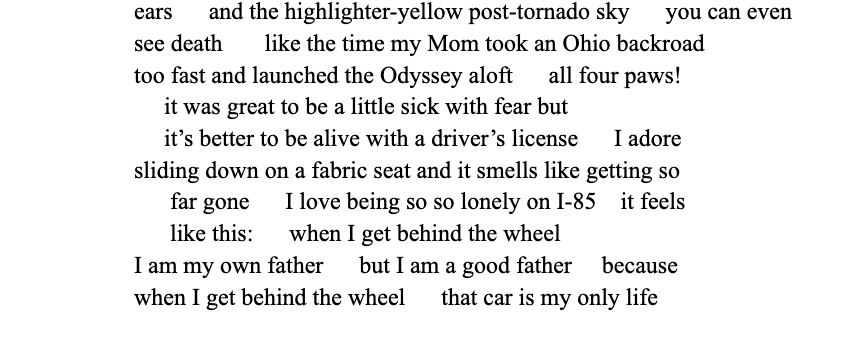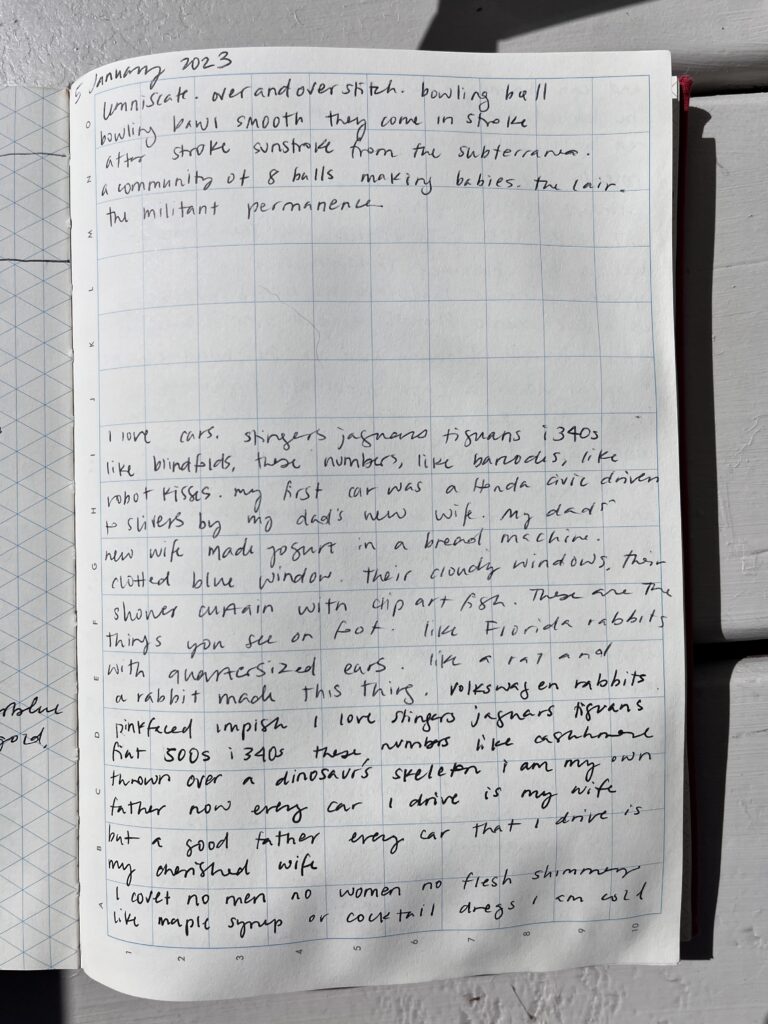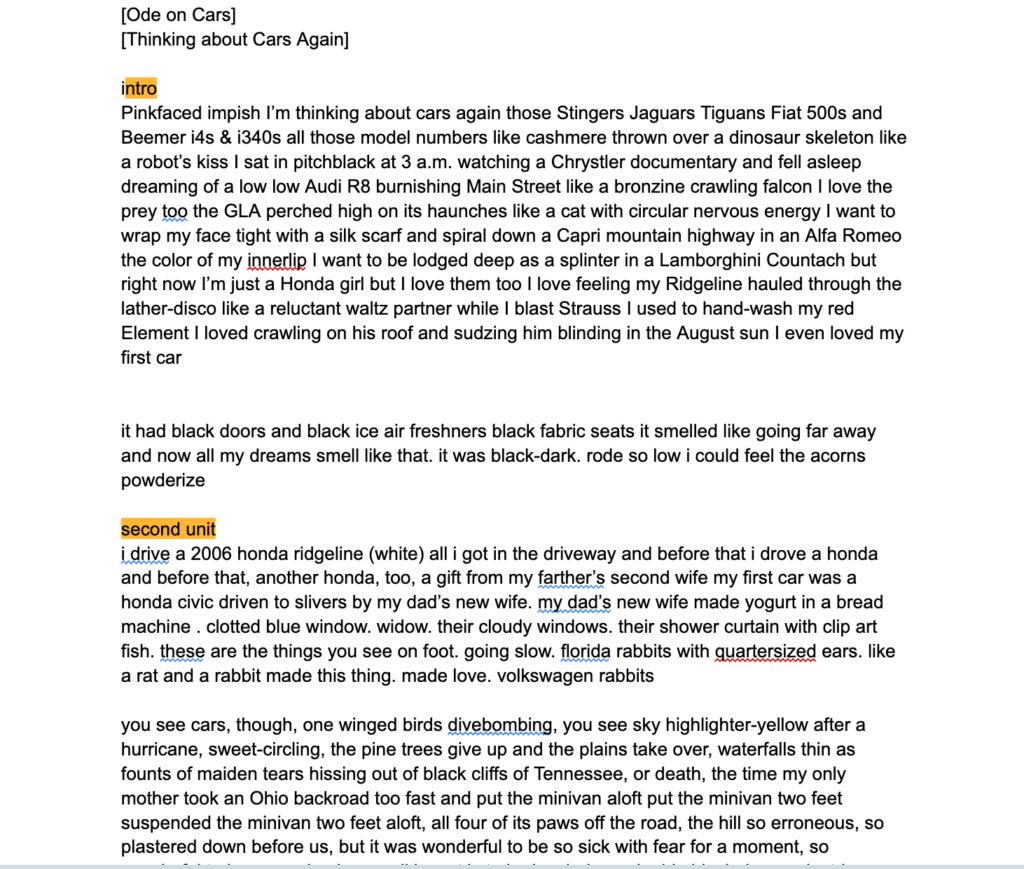
An alternate ending to “Lover of Cars.”
For our series Making of a Poem, we’re asking poets to dissect the poems they’ve published in our pages. Olivia Sokolowski’s “Lover of Cars” appears in our new Fall issue, no. 245.
How did writing the first draft feel to you?
I’ve been into cars since I was around fifteen and daydreaming of nineties Jaguars, but somehow, I’d never written much about them. Along the I-75 last winter, noticing and cataloguing the steady stream of cars along the meridian, I decided it was time to convert my obsession into a poetic one. Prompts are normally tough for me—I feel put on the spot and all my good images flee. But when I set out to write about cars, the task-poem turned out far better than I imagined. Perhaps because the topic is so rich—cars not only engage all of our senses but are also thoroughly ingrained in our cultural and personal histories. I surprised myself with the veer toward a family/coming-of-age narrative. The more luxurious bits, like dreaming of an otherworldly Audi or joyriding through Cinque Terre, were just plain fun to write. I lived vicariously through my speaker.
Who is this speaker? Do you imagine her as a character, or as kind of a pure voice? How similar is she to you, or to your voice?
I call my speaker Olivia+. She draws from my life without the responsibility of fidelity, and she acts and speaks in ways that I might not. She keeps an audience in mind but doesn’t expect a reply. She’s my freer alter ego.

Draft one.
Are the cars in the poem real or fictional?
They’re all real, and many of them I feel strongly about. I see Kia Stingers everywhere and consider them good luck. A couple in a blue Tiguan frequently visited the berry farm where I worked during my college summers. The Hondas were all mine, too. I got a red Element right before my senior prom and loved every mile I drove in it. I grew up surrounded by cars in the suburbs and see them as symbols for self-expression and escape.
Did you show your drafts to other writers or friends or confidants?
I showed a later draft of this poem to my husband, Tom. He’s my one reader and he’s a good one—his critiques are pretty intense, but I’ve learned to love them. He said almost nothing about the draft, which was equal parts shocking, suspicious, and flattering.
When did you know this poem was finished? Were you right about that? Is it finished, after all?
The last hurdle for me was the poem’s ending. I knew I’d written what would be the ending pretty early on, but completing the poem wasn’t as simple as reorganization. After all the flash, I needed it to come to an emotional simmer, like raspberries reducing to compote. The speaker was ready to make a breakthrough, and my task was to articulate her epiphany in a way that balanced the poem and sounded final. It took a lot of tweaking, pacing, and days of rolling it around in my head to feel like I’d gotten there, and I was still wrong a couple times.
I knew the poem was almost complete when I could read it aloud without distraction. Pace, sonics, and the accuracy of verbs are all particularly important to me. In the final stages of revision, I feel like I’m lining up a very complicated combination lock—when the poem is finished, it makes that satisfying click. And then it fully opens. But I also don’t think any poem is ever completely finished!

Draft two.
Olivia Sokolowski is a poet at work on her first collection and a science fiction novel.
from The Paris Review https://ift.tt/5GQwnCX
Comments
Post a Comment